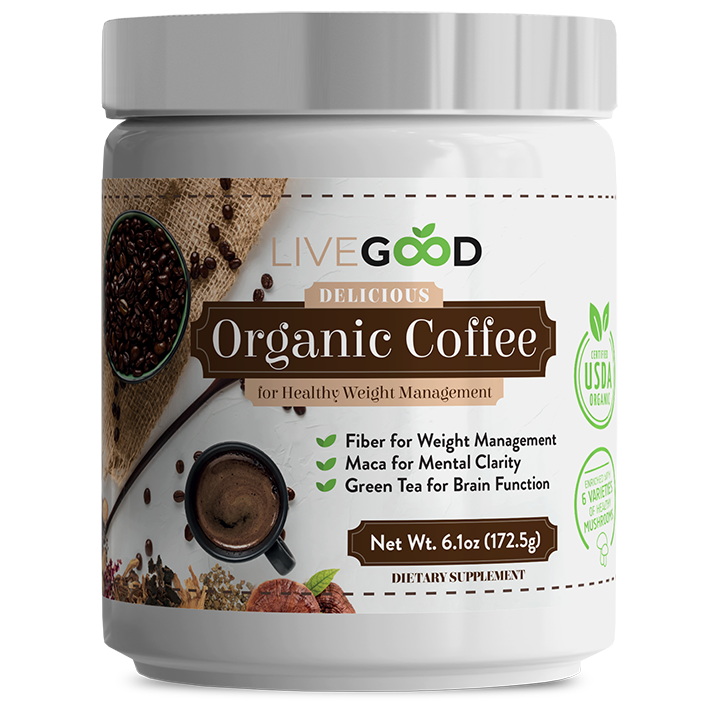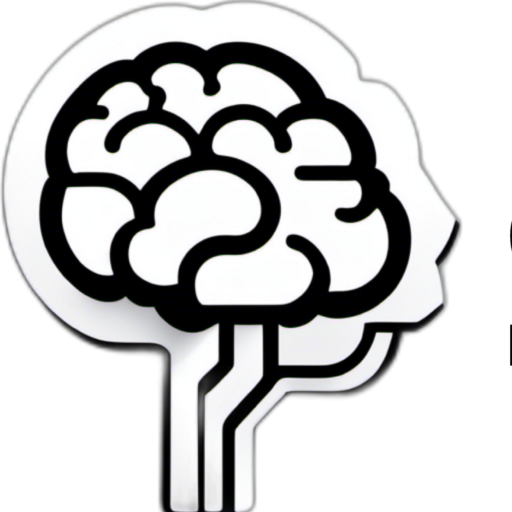
ABC News’ Mara Schiavocampo speaks to author Dr. Bob Arnot, whose new book, can drinking coffee help promote weight loss? Yes!
Millions of individuals start their day with a cup of coffee, drawn not just to its energizing effects but also to its potential health benefits.
Coffee is one of the most widely consumed beverages across the globe, known for its stimulating properties and unique flavor profile.
“The Coffee Lover’s Diet,” claims drinking coffee can help you achieve your weight loss goals.
Organic Coffee
Can drinking coffee help promote weight lose? Yes!
This is very likely the longest name for a coffee you’ve ever seen. But the truth is, with all of the amazing benefits and ingredients we’ve packed into this blend, we could have added even more words, like adaptogens, green tea, healthy fiber, maca, and especially delicious!

Among these benefits, weight management has garnered significant attention, prompting
researchers and health enthusiasts alike to explore the relationship between coffee consumption and weight loss.
The interest in coffee as a potential ally in weight loss stems from several key factors.
Firstly, coffee contains caffeine, a well-known stimulant that may increase metabolic rate and enhance fat oxidation.
This increase in metabolic processes can potentially lead to a more effective calorie-
burning mechanism, which is particularly appealing for those seeking to shed unwanted
pounds.
Additionally, coffee’s ability to suppress appetite might contribute to reduced caloric intake, further supporting individuals in their weight loss endeavors.
Furthermore, the enjoyment of coffee is often culturally ingrained, making it a convenient dietary addition for many.
As a result, the idea of incorporating coffee into a weight loss strategy has become an intriguing subject of investigation.
However, the benefits of coffee consumption must be balanced with considerations of overall dietary habits and lifestyle factors.
Can coffee truly help with weight loss, and what is the appropriate daily intake to maximize its potential benefits?
By exploring the research and recommendations surrounding coffee consumption and
weight management, we aim to provide a comprehensive overview that can guide
individuals in making informed decisions about their dietary choices.
The Science Behind Coffee and Metabolism
Coffee is one of the most widely consumed beverages globally, and its potential impact
on weight loss is a topic of increasing interest.
Central to this discussion is caffeine, a natural stimulant found in coffee that can significantly influence metabolic processes.
Research indicates that caffeine can enhance metabolic rate, leading to a temporary increase in energy expenditure.
This effect is particularly pronounced in sedentary individuals, who may experience a notable boost in calorie burning upon caffeine consumption.
The mechanism by which caffeine enhances metabolism involves several physiological responses.
First, caffeine stimulates the central nervous system, prompting heightened alertness and energy levels.
This stimulation can lead to the release of catecholamines, hormones that facilitate fat breakdown.
As fats are mobilized into the bloodstream, they become available for use as energy, contributing to improved fat oxidation.
Consequently, this process can potentially facilitate weight loss by promoting the body’s ability to utilize stored fat efficiently.
Ultimately, while coffee alone is not a magic solution for weight loss, its components,
particularly caffeine, exhibit properties that may support metabolism and fat oxidation.
These physiological changes provide a foundation for understanding how regular coffee
consumption, when integrated into a balanced diet and active lifestyle, may aid in weight management efforts.
Studies on Coffee Consumption and Weight Loss
Research regarding coffee consumption and its potential role in weight loss has garnered significant interest in the scientific community.
Various studies have investigated the relationship between coffee intake and body
weight, providing insights that either support or contradict the idea that coffee can aid in
weight management.
A common focus of these studies is on caffeine, a prominent component of coffee, which
has been shown to stimulate metabolic processes and may increase fat oxidation.
Clinical trials have indicated that moderate coffee consumption can boost metabolic rate,
which can contribute to weight loss when combined with a proper diet and exercise.
For instance, a study published in the “American Journal of Clinical Nutrition” found that
participants who increased their coffee intake experienced an increase in energy
expenditure compared to those who consumed no coffee.
This suggests that caffeine in coffee can play a role in enhancing the body’s ability to burn calories.
However, not all studies demonstrate positive outcomes.
Some observational studies provide contrasting evidence, indicating that the weight loss
effects of coffee consumption might be minimal or nonexistent in specific populations,
particularly among habitual coffee drinkers.
Moreover, inconsistencies in findings can often be attributed to variations in the type of
coffee consumed, dosing methods, and individual differences, such as genetic
predisposition and lifestyle factors.
Furthermore, both the type of coffee and preparation methods can influence the results.
For example, coffee beverages loaded with sugar and cream could negate any weight loss benefits due to added calories.
In summary, while there is evidence supporting the notion that coffee might facilitate weight loss under certain conditions, the extent of its effectiveness varies based on multiple factors including dosage, preparation style, and individual metabolic responses.
The Role of Caffeine in Appetite Suppression
Caffeine, a central nervous system stimulant found in coffee and various other beverages, has garnered attention in the realm of weight loss for its potential role in appetite suppression.
Numerous studies suggest that caffeine consumption can lead to reduced hunger and altered eating behaviors, which may contribute to weight management.
One possible mechanism behind this phenomenon is the stimulation of adrenaline release.
As caffeine increases adrenaline levels, it can enhance metabolic activity and promote the breakdown of fat stores, facilitating weight loss over time.
Research indicates that caffeine may influence hormonal signals related to hunger.
For instance, studies have shown that caffeine can lower levels of ghrelin, a hormone responsible for stimulating appetite.
Concurrently, it may elevate levels of hormones like peptide YY and leptin, which are associated with feelings of fullness and satiety.
Such hormonal changes can lead to a diminished desire to eat, making it easier for individuals to adhere to calorie-restricted diets.
Furthermore, individual responses to caffeine can vary based on genetic factors and habitual consumption patterns.
Some studies have reported that regular caffeine consumers may experience a reduced effect on appetite suppression over time, suggesting potential tolerance development.
However, occasional users might experience more pronounced effects, making caffeine an appealing option for those seeking to manage their weight.
It is essential to note that while caffeine may assist in appetite suppression, it is not a standalone solution for weight loss.
The role of caffeine should be considered in conjunction with a balanced diet and a healthy lifestyle.
As research on caffeine continues to evolve, individuals may find integrated approaches that harness the benefits of caffeine alongside other dietary and physical activity strategies more effective for achieving their weight loss goals.
How Much Coffee Should You Drink for Weight Loss?
The potential of coffee to aid in weight loss is contingent upon several factors, including individual tolerance levels, daily consumption rates, and overall lifestyle habits.
The common recommendation for moderate coffee consumption typically falls between three to four cups per day, which is associated with a range of health benefits.
However, it is essential to consider personal factors such as age, tolerance to caffeine, and overall health status when determining the right amount.
Individuals differ in their sensitivity to caffeine, with some able to tolerate higher levels without adverse effects, while others may experience jitters, increased heart rate, or anxiety with even small amounts.
For those who are more sensitive, limiting intake to one to two cups may be more advisable.
Moreover, those with certain medical conditions, such as hypertension or anxiety disorders, should consult a healthcare professional before increasing their coffee consumption.
Another crucial aspect is the risk of overconsumption.
While moderate coffee intake can potentially support weight loss efforts by enhancing metabolism, excessive caffeine can lead to negative side effects, including insomnia, digestive issues, and increased heart rate.
The general guideline suggests not exceeding 400 milligrams of caffeine per day, roughly equivalent to four 8-ounce cups of brewed coffee.
Expert opinions emphasize the importance of integrating coffee within a balanced diet.
Rather than relying solely on coffee for weight loss, it is advisable to adopt a holistic approach that includes regular physical activity and a well-rounded diet rich in fruits, vegetables, whole grains, and lean proteins.
Therefore, coffee can be an effective complement to a weight loss strategy, but its role should not overshadow the need for overall dietary balance and lifestyle choices.
The Best Types of Coffee for Weight Loss
When considering coffee as part of a weight loss strategy, it is crucial to understand the different types available and their potential effects on metabolism and overall health.
Black coffee is often recognized as the most effective option for weight loss due to its low-calorie content and high caffeine concentration.
Caffeine, a natural stimulant found in coffee, can enhance metabolic rates and promote fat oxidation, thus contributing to weight loss.
This makes black coffee an excellent choice for those aiming to shed pounds without unintended caloric intake from additives.
Espresso, which contains a higher dose of caffeine per ounce compared to regular drip coffee, can also play a role in weight management.
The concentrated form of espresso provides a quick energy boost and can suppress appetite temporarily, which might help individuals avoid unnecessary snacking.
However, the serving size for espresso is typically smaller, encouraging mindful consumption and providing only a minimal calorie count.
Additionally, espresso can be enjoyed in various ways, such as in Americano or macchiatos, which remain low-calorie depending on any added ingredients.
Specialty coffee drinks, including lattes and flavored coffees, often contain higher amounts of sugar, cream, and syrups, which can significantly increase calorie content.
These additions can negate the potential weight-loss benefits of coffee and generally should be avoided or consumed sparingly.
For those wishing to align their coffee choices with weight loss goals, it is recommended to select unsweetened options and limit creamer or sugar intake.
Ultimately, the healthiest choices revolve around black coffee or espresso without various additives, ensuring that coffee contributes positively to overall wellness and effective weight management efforts.
Conclusion: Balancing Coffee Intake with Overall Health
In assessing the relationship between coffee consumption and weight loss, it is important
to recognize that while coffee may offer some benefits, it should not be viewed in isolation.
The potential weight loss effects attributed to coffee are primarily derived from its caffeine content, which can enhance metabolism and promote fat oxidation.
However, these benefits can be significantly influenced by an individual’s overall lifestyle choices, including dietary habits and levels of physical activity.
When considering the role of coffee in a weight management strategy, balance is crucial.
Incorporating coffee into a healthy diet can complement weight loss efforts, but
excessive consumption can lead to adverse health effects, such as increased heart rate,
anxiety, and disrupted sleep patterns.
Therefore, it is vital for individuals to gauge their own reactions to coffee and tailor their intake accordingly.
Listening to one’s body can provide critical insights into how coffee impacts energy levels, appetite, and overall well-being.
Moreover, seeking guidance from healthcare professionals is advisable when making significant changes to coffee consumption.
Each person’s response to coffee can vary markedly based on factors such as individual health conditions, metabolism, and lifestyle.
Engaging with a healthcare provider can help determine a suitable approach that aligns coffee intake with personal health goals.
Ultimately, while coffee can play a role in weight loss strategies, it is essential to
approach it as part of a wider holistic plan that prioritizes balanced nutrition and regular physical activity.
By fostering healthy habits and making informed choices regarding coffee consumption,
individuals can support their weight management objectives in a sustainable manner.
Achieving long-term health and wellness involves a collaborative approach that considers all components of one’s lifestyle.
Crazy Health Ideas
Chinese Girl Gym Workout 2823💪 Asian Fitness Model Inspiration
https://youtube.com/watch?v=09jhZdsPEKI💪 Inspiring short fitness clip featuring a Chinese girl working out at the gym –…
Chinese Girl Gym Workout 2828💪 Asian Fitness Model Inspiration
https://youtube.com/watch?v=bS8TqSqgafI💪 Inspiring short fitness clip featuring a Chinese girl working out at the gym –…
Drink This Daily for Brighter Skin, Better Digestion & Improved Heart Health
https://youtube.com/watch?v=op-oeEfBKCw✨ Looking for a natural glow from the inside out? This simple blend of beetroot,…
#homeworkout #weightloss #fatloss #workout #health #shorts
Valentines Diet Plan For Fast Weight Loss In Hindi 2026 💘 Lose 10 Kgs In 15 Days | Let’s Go Healthy
https://youtube.com/watch?v=Fuyefk04j3w❤️ Valentine’s Diet Plan 2026 | Lose Weight Fast & Feel Confident (In Hindi) ❤️…










Leave a Reply